Innovation Talk:
"A green recovery needs green innovation"
Online panel discussion on the occasion of the High-Level Political Forum on Sustainable Development.
Broadcasted live from this webpage! (use this link from 13:50)
Friday, 9 July 2021
14:00 - 15:00 (UTC+02:00) Amsterdam, Berlin, Bern, Rome, Stockholm, Vienna
For checking the data protection policy for visiting this website, click here.
For the data protection of using the Slido interaction tool, click here.
Please take note, that when the stream is being accessed, data is collected and exchanged that is required to provide that service. These are:
• IP address
• type and version of the browser software
• the operating system and its interface
• the accessed page
• the website from which the request comes (referring URL)
• date and time of the request
For the purpose of providing the stream, this data is only collected by the service provider informedia GmbH at the time the stream is retrieved. For the rest, we refer to the data protection declaration under https://www.bmbf.de/en/statement-on-data-protection-12.html.
At the beginning of the Decade of Action, there are only nine years left to meet the UN Sustainable Development Goals (SDG). As key levers of sustainable development we need science and innovation not only to build a sustainable future for all but also to build back better after Covid-19. A green recovery is essential for fulfilling the SDGs. Science and research come up with brilliant ideas for a green recovery. But will these ideas spread quickly enough to make a real change? Who should act as driver for green innovation? Governments? Business?
An online panel discussion organized by the German Federal Ministry of Education and Research (BMBF) aims to illustrate how research and innovation can contribute to implementing the SDGs. Following a welcome message by Anja Karliczek, Germany´s Minister for Education and Research, experts from science, industry and innovation will discuss the challenges and highlight promising solutions.
Programme
14:00 Opening remarks by Anja Karliczek, Germany´s Minister for Education and Reserach
14:10 Panel discussion with:
Barbara Diehl, Responsible for partnerships with Science and Business, Federal Agency for Disruptive Innovation, Germany
Cherry Murray, Professor for Physics, University of Arizona, USA
Christian von Olshausen, Chief Technology Officer, Sunfire GmbH, Germany
Åsa Persson, Research Director and Deputy Director, Stockholm Institute for the Environment, Sweden
Volker Rieke, Director-General "Provision for the Future - Basic Research and Research for Sustainable Development", Germany
Johan Rockström, Director, Potsdam Institute for Climate Impact Research, Germany
14:45 Q&A
15:00 End of the event
Speaker
Anja Karliczek
German Federal Minister of Education and Research (video message)
Anja Karliczek has been Federal Minister of Education and Research since 2018. Prior to that, she was the Parliamentary Secretary of the CDU/CSU parliamentary group. She has been a Member of the German Bundestag since 2013.
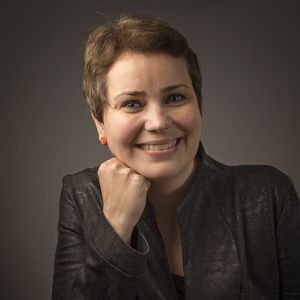
Barbara Diehl
Federal Agency for Disruptive Innovation
(SPRIN-D)
Barbara Diehl is a self-confessed 'space cadet', and has been active at the interface of science, research, society and entrepreneurship for over 15 years. At the Federal Agency for Disruptive Innovation (SPRIN-D), she primarily looks after partnerships with science. Her professional and career globetrotting have already taken Barbara to many unknown galaxies, most recently as Head of Transfer and Innovation at the Helmholtz Association of German Research Centres and before that in a senior position at University College Dublin and the University of Oxford.
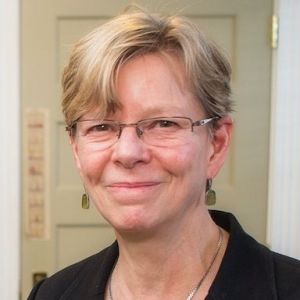
Cherry Murray
Professor for Physics, University of Arizona
Murray held research and executive positions at Bell Laboratories, was Principal Associate Director for Science and Technology at Lawrence Livermore National Laboratory, professor and dean of Harvard University School of Engineering and Applied Sciences, Director of the US Department of Energy Office of Science and is now professor of physics and Deputy Director of Research at Biosphere 2 at the University of Arizona. She is also co-chair of the InterAcademy Partnership and co-chair of the United Nations 10-Member Group in support of the Technology Facilitation Mechanism.
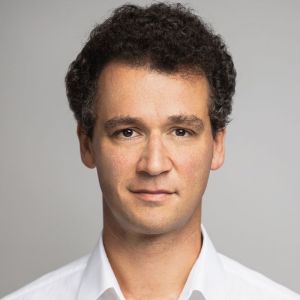
Christian von Olshausen
Chief Technology Officer (CTO) and Founder, Sunfire GmbH
Managing the technical developments of one of the world's leading electrolysis companies, Christian von Olshausen is pursuing a grand vision: A world without fossil fuels. Sunfire's electrolyzers – based on alkaline and solid oxide (SOEC) technologies – provide renewable hydrogen and e-Fuels as substitutes for fossil energy sources. Having worked for Procter & Gamble for four years, he started Sunfire as a project in 2008 before becoming cofounder and CTO of the company in 2010.
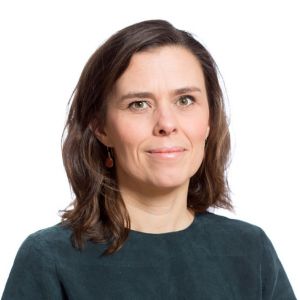
Åsa Persson
Research Director and Deputy Director at SEI
Åsa Persson develops and oversees research strategy at the Stockholm Environment Institute (SEI), a global research and policy organization in the field of sustainable development. With over fifteen years of experience, her own research focuses on national policy and governance of sustainable development in an international context, including issues such as climate adaptation, sustainable consumption, and SDGs. Åsa is a member of the Independent Group of Scientists to prepare the 2023 UN Global Sustainable Development Report.
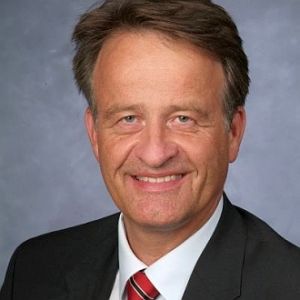
Volker Rieke
Director-General "Provision for the Future - Basic Research and Research for Sustainable Development", Sustainability Coordinator at the BMBF
Volker Rieke has over 30 years of experience working at the Federal Ministry of Education and Research (BMBF) in Germany. He currently holds the positions of Head of Directorate-General "Provision for the Future - Research for Basic Principles and Sustainable Development" and BMBF Coordinator for Sustainable Development.
Johan Rockström
Director of the Potsdam Institute for Climate Impact Research, Professor in Earth System Science at the University of Potsdam
Johan Rockström gained international recognition with the development of the Planetary Boundaries framework, which is now state of the art of sustainability science. His research, which has widely been used to guide policy, covers a range of topics related to the Earth System, global sustainability in the Anthropocene and sustainable transformations.
Last updated on



